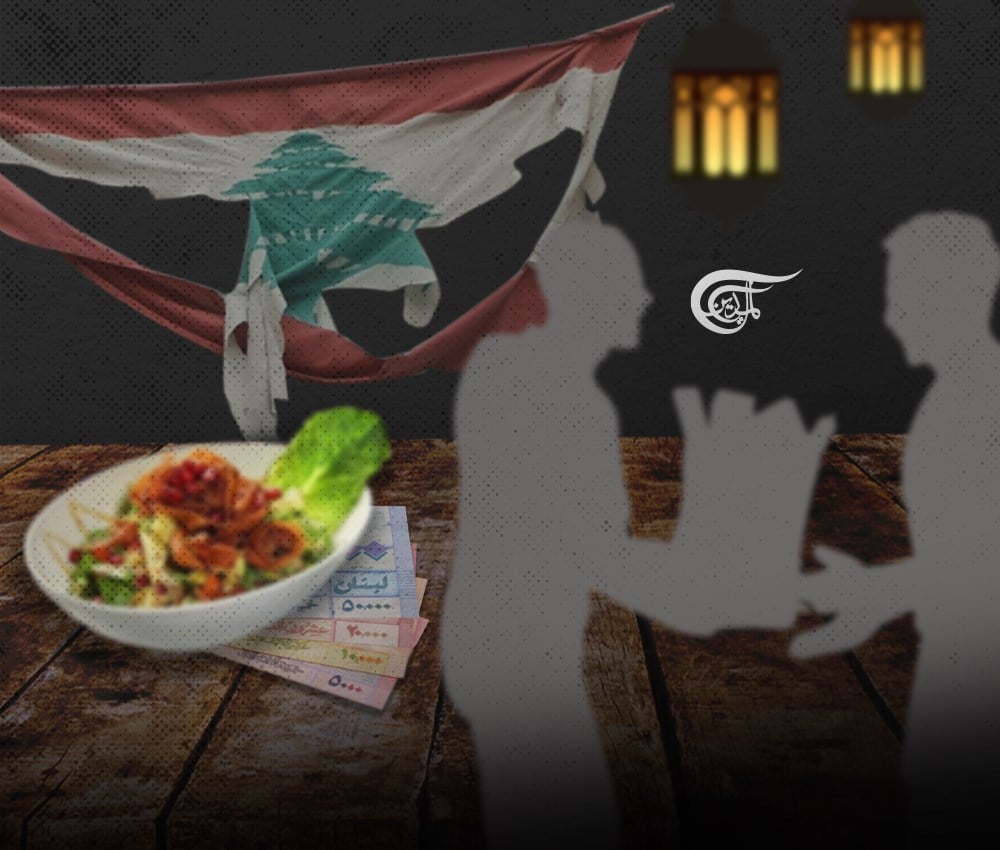Lebanese ensure no one goes hungry in Ramadan amidst state collapse
This year, the Lebanese have to rely on the essence of the holy month of Ramadan, which is the act of giving.
-

Lebanese ensures no one goes hungry in Ramadan amidst state collapse
The holy month of Ramadan came this year to Lebanon with the currency and economy in a free fall, making it harder for Muslims to celebrate this spiritual month.
The Lebanese pound dropped to around 24,000 against the US dollar to this date. The currency has lost over 90% of its value since late 2019.
A study done by the American University of Beirut (AUB), titled the "Fattoush Index", stated that the cost of its ingredients - which include lettuce, tomatoes, cucumber, parsley, radish, and bread - soared 210% since 2019, in a country where the minimum wage is around $50 a month.
“The price of a bowl of Fattoush (Lebanese salad, a staple on the iftar table) costs around 85,000 LBP," Ali Hilal, a vegetable shop owner in Beirut, told Al Mayadeen English.
“In previous years, before the crisis hit Lebanon this hard, my shop would be buzzing with buyers since the early hours of the morning; this year it’s different," he added.
According to the ‘Hunger Hotspots’ report, Lebanon witnessed a 146% year-on-year increase in the inflation rate, with food inflation recorded at around 402%, in the 2021 report. This year the situation has only gotten worse.
Economist Dr. Bassam Hamdar told Al Mayadeen English that in Ramadan, the Lebanese have to rely on the essence of the holy month of Ramadan, which is giving.
“Social containment and donations are the only things that families could do in a short time to contain the crisis the country is facing”, Hamdar stated.
“It will take a long time for real economic reforms to take place; there is no magic stick that would solve this in a short period of time”, he said.
He continued that finalizing the deal with the IMF and the World Bank could make way for more donations that Lebanon is in dire need of.
In response to the urgent needs, charity organizations have had to expand their efforts to help those in need, as unemployment in the nation of five million people rises.
Inner Voice Beirut, a Beirut-based NGO, has been providing help to people in need for over 10 years, but this year they insist it’s different.
“Last year we distributed over 460 food parcels, 300 bread bags, medicines, fresh vegetables, and helped pay the rent for families all over Lebanon who were struck terribly by the crisis”, a volunteer at Inner Voice told Al Mayadeen English.
The organizations used to count on donations from inside and outside Lebanon in the past, but as the crisis in the country steepened, they currently primarily rely on donations from the Lebanese diaspora in USA, UK, and Australia, as the people inside the country can no longer help out as much as before.
Who is Hussain, a global movement with representatives in over 60 cities around the world that aims at empowering communities around the world to organize charitable events for the common good, has been working hard in Lebanon.
This year, they are keen on making sure that the much-needed aid reaches over 1000 families.
Head of Who is Hussain in Beirut, Riham Hijazi, told Al Mayadeen English that they “will be distributing essential Ramadan groceries, gas, fruits, vegetables, fresh chicken, and suhur meals to help ease the suffering of the families in crisis."
Many are now also relying on aid from family members and friends living abroad to help them.
“My sister sends me 200$ a month from her job as a hostess in a restaurant in Qatar, and this seemingly significant amount is what allows me to put food on the table at the end of the day”, Husam Sharafeddine, a taxi driver, stated.
The poverty rate, according to World Bank estimates, is at 60% of the population. Of that, 22% are below the extreme poverty line compared to only 8% pre-2019, according to the Lebanese Ministry of Social Affairs.
Locals have also come up with their own initiatives that are also dominating the scene this Ramadan.
Dania Al-Assad, a 41-year-old mother of 3, said she can’t stand the fact that the families in her neighborhood would go to bed hungry during the holy month.
“Every day when I finish preparing iftar for my family, I put aside a portion of the food I cooked, enough for a family of 4, and give it to a family in my building, that needs it,” she said
Soon enough, other capable people started doing the same.
“This year, we all doubled our efforts. I pack 2 meals for needy families, complete with soup, salad, and a main course”, she said.
“We have to be there for one another, that is the only way,” Al Assad concluded.

 Ghadir Hamadi
Ghadir Hamadi
 5 Min Read
5 Min Read










